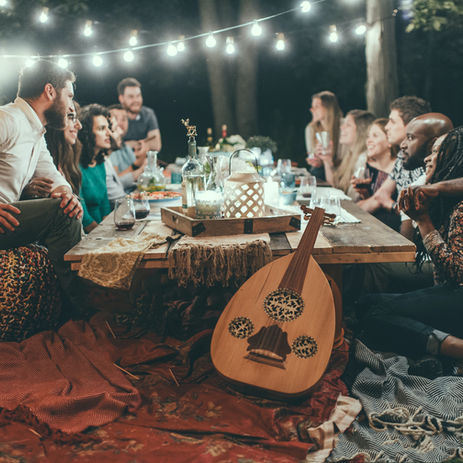Social Skills and Relationships
Social skills & relationships are the uniquely human ability to truly connect, collaborate, and build trust with others, a skill vital for all future human-centric roles and navigating an AI-integrated world that machines cannot replicate.

Action Items
(Emphasize trust, respect, and effective communication)
Teach Social Skills
Key Tangible Social Skills for Kids
-
Active Listening:
-
Make eye contact.
-
Nod.
-
Face the speaker.
-
Say "Mmm-hmm."
-
Ask clarifying questions.
-
-
Respecting Personal Space:
-
Keep appropriate distance.
-
Stop immediately if told "no."
-
-
Initiating & Joining:
-
Use greetings.
-
Smile.
-
Observe a group first.
-
Ask to join.
-
Offer contributions.
-
-
Polite Language:
-
Say "Please."
-
Say "Thank You."
-
Say "Excuse Me."
-
Say "I'm sorry."
-
-
Expressing Emotions:
-
Use "I feel" statements.
-
Take deep breaths when upset.
-
Use words instead of actions.
-
Order Food at Restaurants
Having kids order their own food at restaurants offers a valuable, real-world opportunity to build social skills. This simple act encourages clear communication, as they must articulate their choices to be understood. It also fosters confidence as they interact with an unfamiliar adult, practice polite language ("please" and "thank you"), and learn to make their needs known. Furthermore, it helps them understand social cues from the server and navigate a common public interaction, preparing them for future independent communication.
Emphasize effective communication: eye contact, clear speech, active listening.
Participate in Team Sports
The coach is the key but parents can emphasize the value of "team."
Emphasize trust, respect, and effective communication.
Play Dates with Friends
Playdates are invaluable for children's social skills because they provide a low-pressure, child-led environment. This direct, often unsupervised interaction forces kids to negotiate, share, compromise, and resolve conflicts in real-time, which is crucial for developing communication, empathy, and social cue recognition.
Emphasize fun, conflict resolution, mutual respect.
Board Games
Structured play, like board games, is vital for kids' social skills because it offers a clear framework for interaction. Within this guided setting, children learn to take turns, follow rules, manage winning and losing gracefully, and practice patience. These activities naturally encourage negotiation, polite communication, and cooperative problem-solving, making the practice of essential social behaviors fun and effective.
Emphasize individual achievement AND mutual respect of opponent.
Give Gifts to Others
Gift-giving by kids, even simple handmade items, is a powerful way to build social skills. It shifts focus from receiving to giving, nurturing empathy as they consider what others might like. This act encourages perspective-taking, requires planning and effort, and culminates in the joy of making someone else happy, reinforcing the positive impact of their social actions and strengthening relationships.
Emphasize empathy.
Introduce New Environments and People
Being around diverse people and groups is crucial for children's social skill development because it broadens their world understanding. Interacting with varied backgrounds, cultures, and experiences helps kids adapt communication, build empathy, navigate differences respectfully, and solve problems creatively. This exposure prepares them for our multicultural world, fostering stronger, more inclusive connections.
Play Outside
Kids who play outside tend to be more social.
Outdoor play naturally encourages social skill development because it often involves:
-
Unstructured Interaction: Kids create their own games, roles, and rules, fostering negotiation, compromise, and conflict resolution.
-
More Space & Freedom: Less confinement can reduce competition and make children more comfortable initiating interactions.
-
Diverse Peer Groups: Public outdoor spaces expose children to a wider range of personalities and ages, building adaptability in their social approaches.
-
Shared Goals: Activities like building a fort or playing a group game encourage teamwork and communication.
Lots of Family Interactions
Engaging in lots of family talk, telling stories, jokes, and playing verbal games is profoundly important for a child's social skill development because it builds their communication fluency and comfort. These interactions create a consistent, low-pressure environment where kids naturally practice:
*Good with products
*Book about Talk so they listen and listen so they talk
Products













